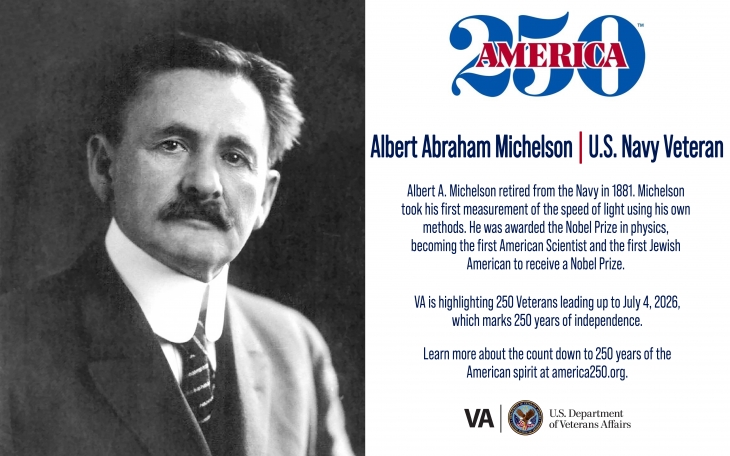
This week’s America250 salute is Navy Veteran Albert A. Michelson.
Albert A. Michelson was born in Strelno, Prussia (now Poland), in 1852. When he was young, his parents emigrated to the U.S. and eventually settled in Murphy, California, and later Virginia City, Nevada—both mining areas. During high school, Michelson lived with his aunt so he could attend school in San Francisco. Upon his graduation in 1869, he received a special appointment to the U.S. Naval Academy from President Ulysses Grant.
He graduated from the Naval Academy in 1873 and went on to complete two years of service in the West Indies before returning to the Naval Academy to teach. There, Michelson started his career in education and research, becoming an instructor in chemistry and physics. At the Naval Academy, Michelson performed his first experiment related to the speed of light during a class demonstration using Foucault’s method. This experiment prompted Michelson to work to develop a more precise means of measurement. Eventually, in 1879, he took his first measurement of the speed of light using his own methods. Later that year, Michelson went to the Naval Observatory to work in the Nautical Almanac Office, where he worked alongside Simon Newcomb.
In 1880, Michelson took a leave of absence to travel to Europe and continue his scientific research. This leave of absence eventually led to his resignation from the Navy. Michelson then began work at what is currently known as Case Western Reserve University in Ohio. There, he worked alongside Edward Morley. They conducted the Michelson-Morley experiment, which failed to prove the existence of an ether which light waves travel through, contradicting current models and showing that light travels at a constant speed. The goal of their experiment was to prove the existence of an ether, but their final results created one of the most famous failed experiments in history.
In 1889, Michelson went on to work at Clark University in Worcester, Massachusetts. In 1892, he transitioned to the University of Chicago, becoming the first head of their physics department. Throughout his time teaching and experimenting, Michelson invented the interferometer, which further helped prove the constant speed of light and contributed vast research and writing to the scientific community. He also worked alongside the international Bureau of Weights and Measures to measure a meter in terms of cadmium light’s wavelength.
In 1907, Michelson received a Nobel Prize in physics, becoming the first American scientist and the first Jewish American to receive a Nobel Prize. He received this award for his discoveries and for his advancement of scientific precision.
When the United States entered World War I in 1917, Michelson chose to rejoin the Navy. During this time, he worked on a rangefinder as well as a variety of other equipment and technology for the Navy. After the war ended, Michelson worked with other scientists and measured the diameter of the star Betelgeuse. In 1924, Michelson conducted an experiment at Mount Wilson Observatory to further refine his value for the speed of light.
Michelson continued working on his research until his death in 1931. His discoveries have helped advance research and expand the world’s scientific knowledge of light.
We honor his service.
America250
VA is highlighting 250 Veterans leading up to July 4, 2026, which marks 250 years of independence. Learn more about the count down to 250 years of the American spirit at https://america250.org/.
Contributors
Writer: Kimberly Kassis
Editors: Merrit Pope, Annabelle Colton
Fact Checker:
Graphic Designer: Kiki Kelley
Topics in this story
More Stories
Today's America250 and #VeteranOfTheDay honors Army Veteran Clifford Sims, who was posthumously the Medal of Honor.
America250 wants you to share your story. We want to hear the story of your service and your reflections on our nation’s past, present and future.
Today's America250 and #VeteranOfTheDay is Army Veteran John J. Pershing, who became General of the Armies of the United States, the highest rank possible for any member of the United States Armed Forces.

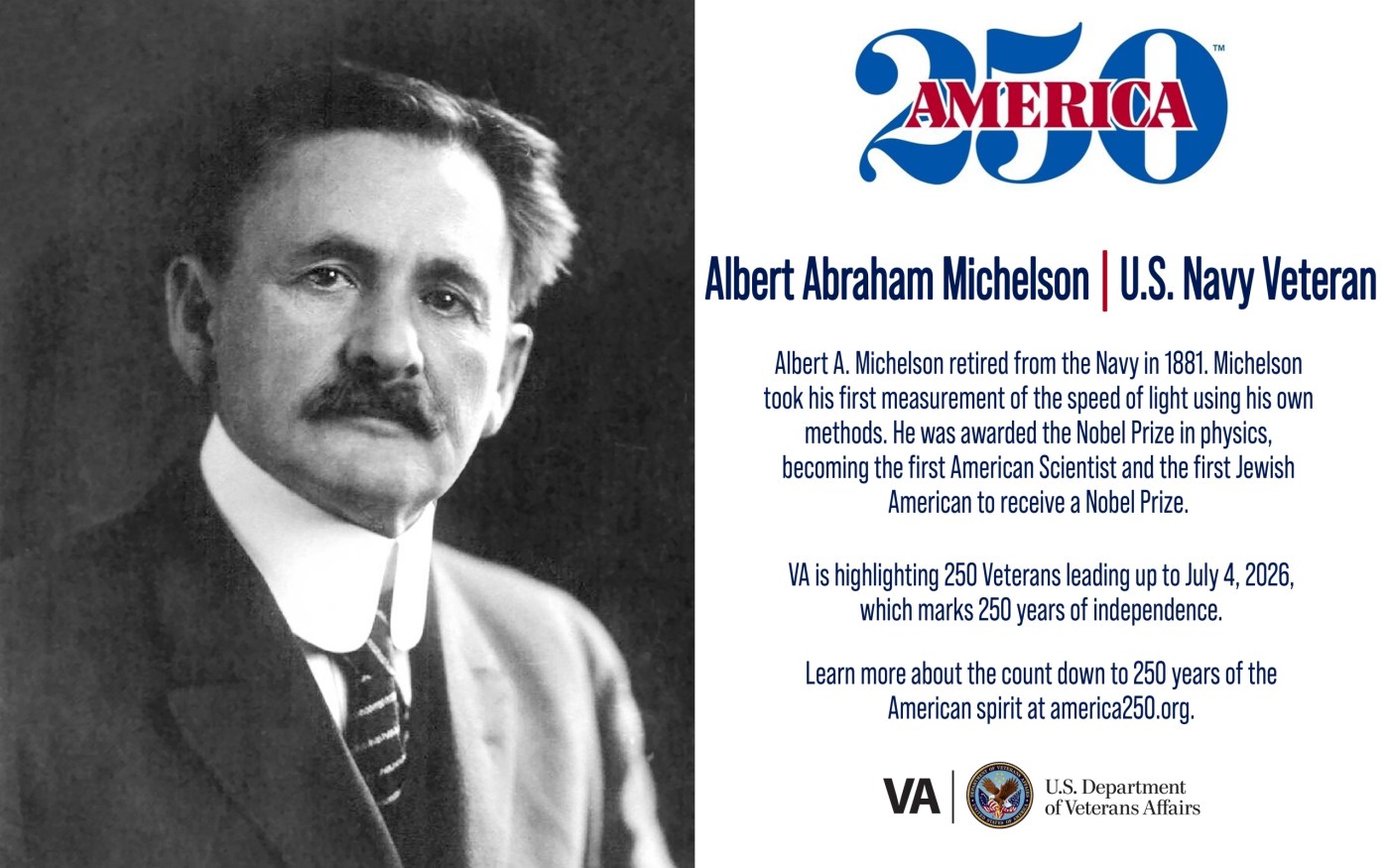
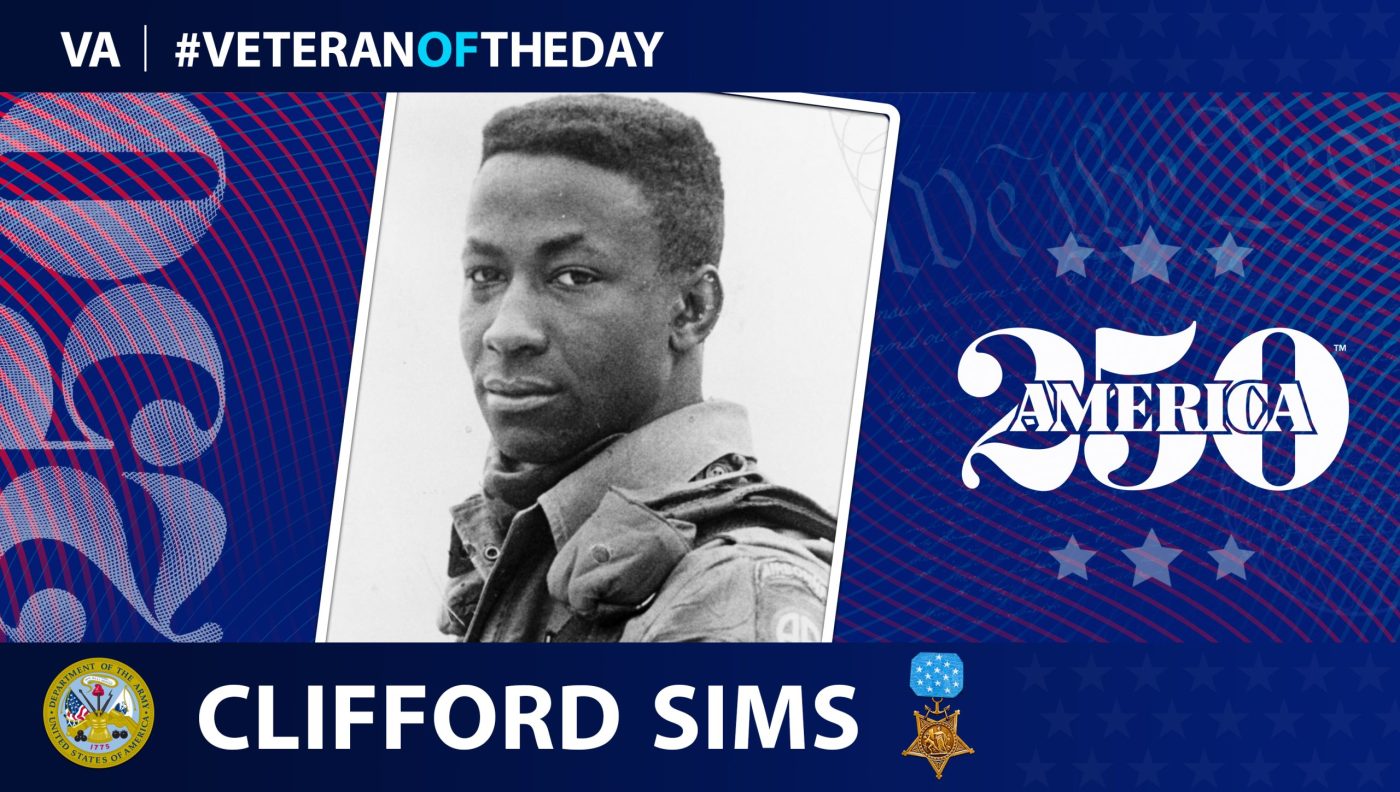
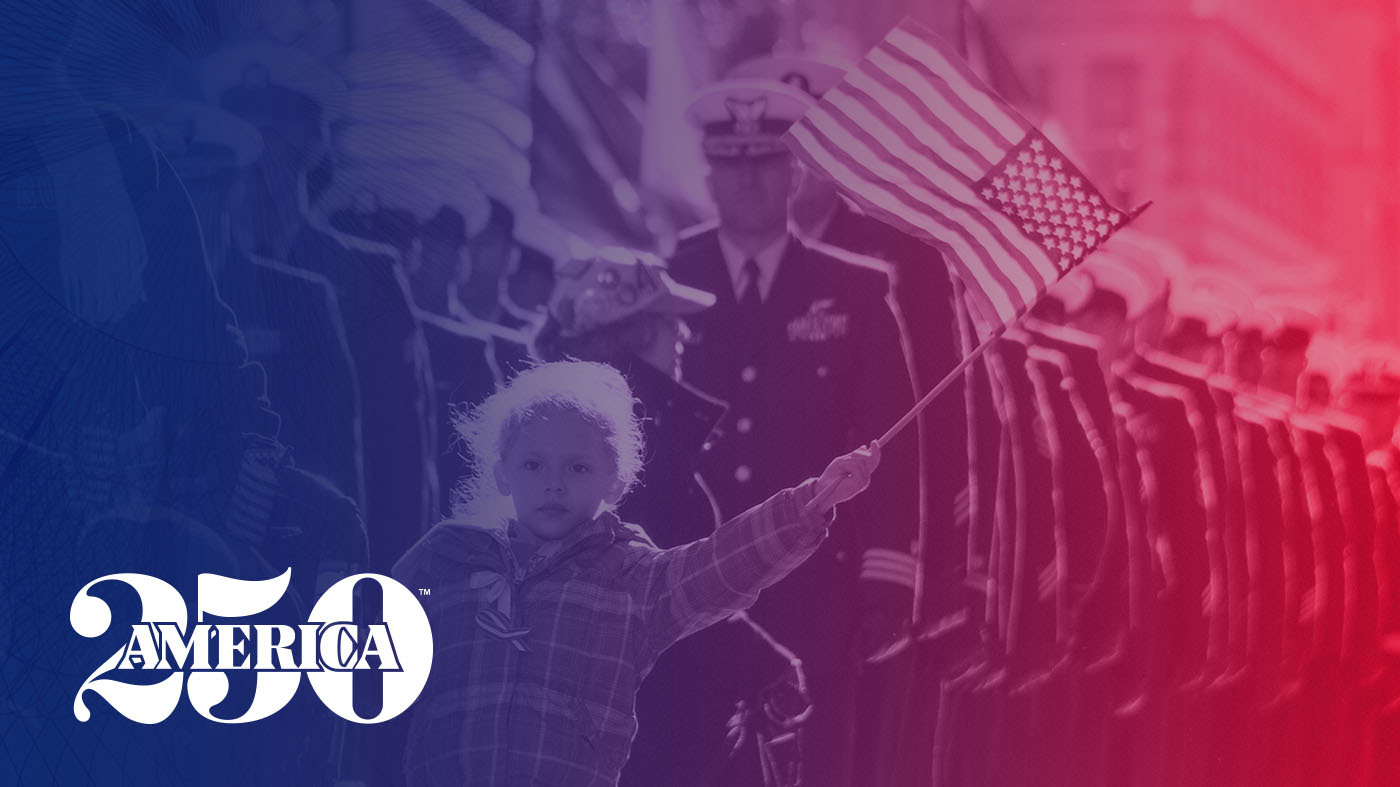
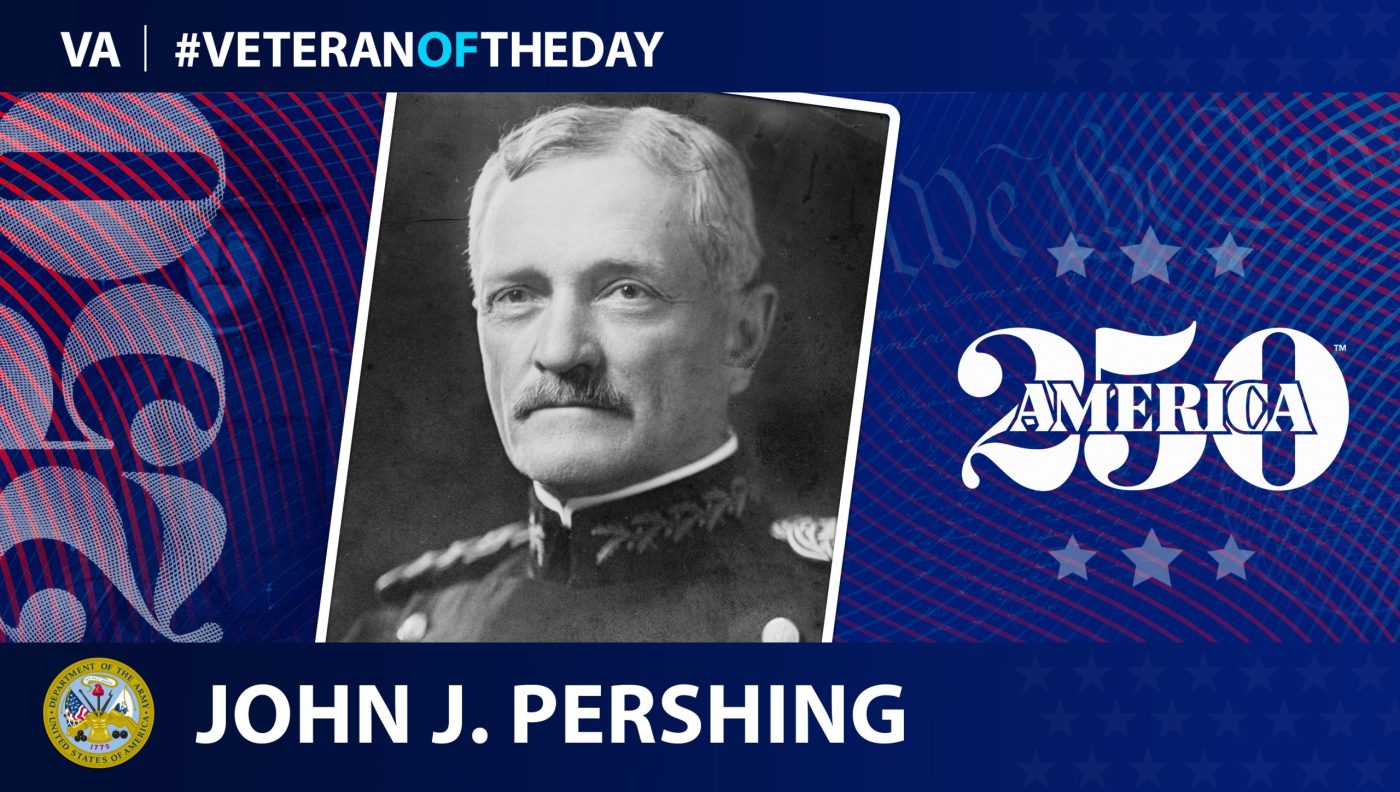


“famous failed experiment”. I have to disagree.
Any experiment that advances knowledge is a success. The ether was ‘the box’ outside which many good scientists could not see during that time.